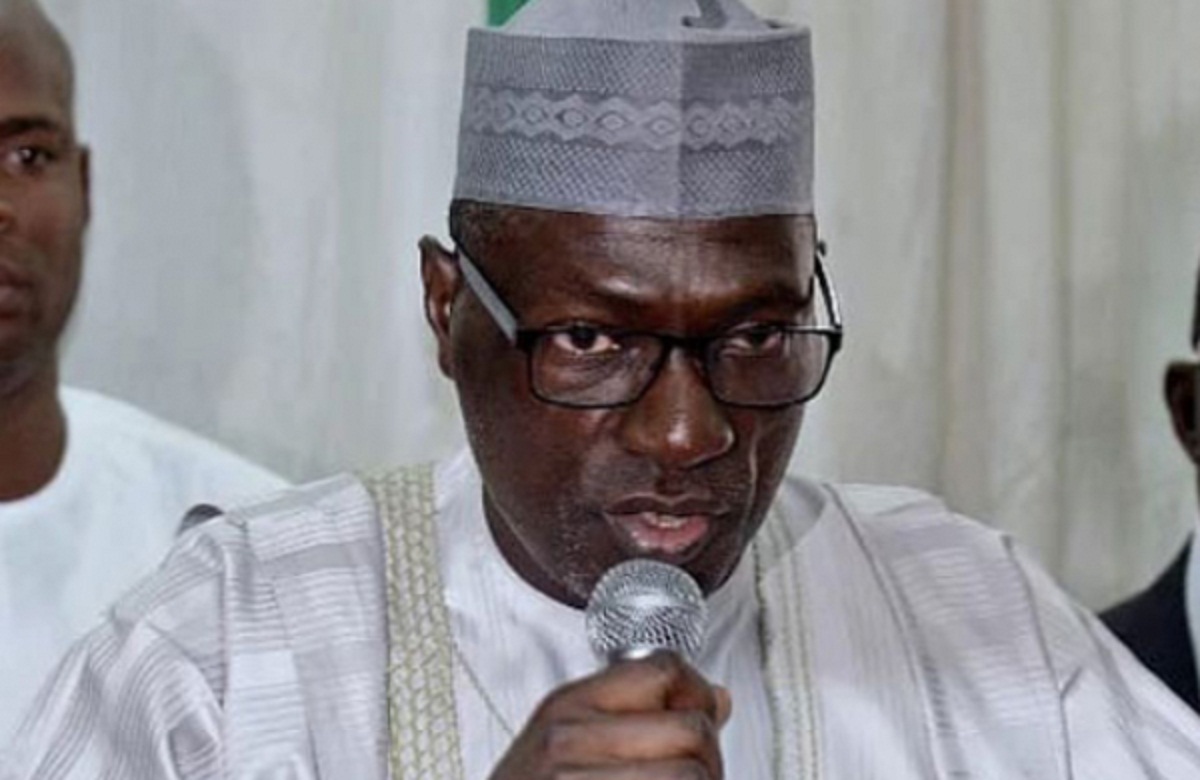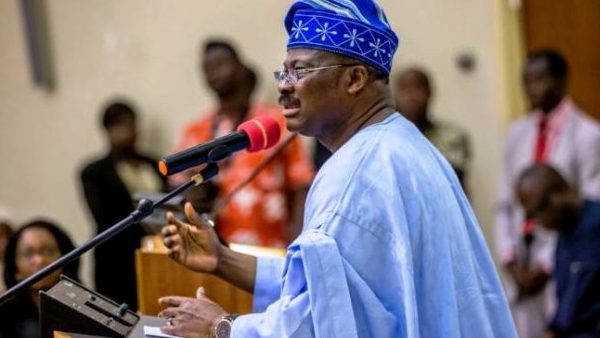Hearing some Nigerians speak (whether based at home or in the Diaspora) you discern that they are “in the gall of bitterness and in the bondage of iniquity.” They spew out things that give them away as “whited sepulchers, which indeed appear beautiful outward, but are within full of dead men’s bones.”
What happened to grace? Where did decency disappear to? Are words not to be seasoned with salt again? What has happened to us as a people? The more rotten, the better, it seems. The fouler and odoriferous the cesspit, the more attractive, followed by applause.
That seems to be the philosophy of some people today, and it doesn’t matter who they are. High or low. But we cannot continue that way, if we want to be acceptable to God, and to our fellow human beings. National development does not come by a sudden flight. You work at it.
The sing-song in the country today is restructuring of the polity. We want more states. We want a return to regional structure. We want a revision of the revenue allocation formula. We want six vice presidents, one from each geo-political zone. We want those zones to be the federating units, rather than the states. And so on, and so forth.
In fact, so loud is the cacophony of voices over restructuring that if you ask 100 people what they mean, they give you 100 different explanations. But as a country, I believe we will get there someday. And soon.
However, is political restructuring the most urgent thing Nigeria needs now? I don’t think so. For me, what is more urgent is the restructuring of the Nigerian mind. A mind that sees the country as one, that believes that we have a future and a hope, that believes that we are one people under God. But what we see now is ruinous for any country. It is hemlock, bound to poison the entire polity, and send it to a premature perdition.
On Tuesday, the National Bureau of Statistics (NBS) announced that we had exited from economic recession. It was cheery news for majority of Nigerians, save for those in the gall of bitterness. They spat in the sky, and collected the spittle with their faces. Who gave Nigeria the permission to exit recession? Who gave her the audacity of hope? How can the economy attempt to rebound, when it should sink deeper and deeper into the miry clay?
They were in the doldrums, unhappy because good news came for the country. In their befuddled minds, Nigeria must never see a silver lining in the sky. The ravening clouds must ever remain victorious, must forever possess the sky, simply because of primordial reasons.
The party in power is not my own, so why should Nigeria make progress under it? The President in office was not the one I voted for, so why should he succeed? He does not speak my language, he is not of my religion or ethnic stock, so why must Nigeria prosper under him?
They, therefore, throw all sorts of tantrums, like a child whose lollipop is taken away, and attempt to rubbish the news on exit from recession. And those same people would canvass for a restructuring of the polity. Big mistake. Wrong priority. They need to have their minds restructured first, so that they have goodwill towards their own country, and towards all men. Left to them, they wish that when NBS releases results for the next quarter, Nigeria should have gone back into recession. Filthy dreamers! Awful imaginations! They need a restructuring of their minds, and quickly, too.
Some people spend their lifetime expecting thunderstorms and hurricanes, so they never enjoy showers of blessing. Their addled minds expect negative news, so they never enjoy good tidings. They are the type that swallow poison, and then begin to hope that it will kill the person next door. Restructuring, restructuring, that is what such minds need.
Chase after him. If you catch up with him, kill him. If he outruns you, poison his footsteps. That is the chant in most parts of the country today. Out of the abundance of the heart, the mouth speaks. Hate has become their natural language. When they speak hateful words, they speak their native language, their mother tongue. Don’t mind the elevated offices they occupy now, or which they have occupied in the past. They are in the throes, in the paroxysms of bitterness.
Only a restructuring of the mind can save them. My dear senior friend, Ikemba Obosima, from Imo State, has good counsel for them, in a text message he sent to one of them recently, which he copied me:”Pain will follow him who speaks or acts with evil thoughts, as does the wheel of the foot of him who draws the cart. He is greater man who conquers self than he who kills a thousand men in war…Love will purify the heart of him who is beloved as truly as it purifies the heart of he who loves.” But will they listen? If they have not danced too far, and have not become like the dog fated to get lost, which refuses to hear the whistle of the hunter. Let them return home, to sanity.
The National Bureau of Statistics announced our descent into recession. They embraced the news, almost with sickening glee. Now, the same agency has announced exit, and they begin to question its impartiality. What kind of people are they? They want to hear only bad news? May their minds be restructured, lest bad news dog their footsteps. Malediction? Am I cursing anybody? Not at all.
Just a warning, and a call to new attitude, new thoughts, new conduct. The things we expect have a way of coming upon us. Ask the biblical Job. “What I feared has come upon me. What I dreaded has happened to me.”(Job 3:25).
One of the characteristics of a hateful mind is that it conjures a lot of mischief, and purveys same as truth. And the gullible laps it up. During the health challenge of our dear President, a thing common to any mortal, big or small, of high or low estate, they filled the land with evil tidings. Oh, he is on life support machine. No, he is dead and long buried. He will never return to that office, I swear. And then, God did what He knows how to do best. He showed the Deus ex machina, His Invisible Hands. Now, the reputation of those people is hanging on life support. If only men would restructure their minds!
President Buhari says exit from recession is cheery news, but until the life of the average Nigerian is positively touched by the economy, he doesn’t consider the job done. Very good. Even the NBS, which brought the good news, says the economy is still fragile, and the good work must continue, so that we don’t slide back. That is exactly what this government would do. That is the motive behind the ERGP (Economic Reconstruction and Growth Plan). So, let nobody be filled with diabolic thoughts. Government does not feel it is there yet. Action stations! All hands on deck.
A final word for haters, wailers, purveyors of fake news, or whatever you choose to call them. Evil minds wax worse and worse. A hater would envy others unnecessarily. He would conjure evil thoughts that would poison his system. He would manifest all sorts of negative tendencies that turn him into a proper child of the Devil. And at the end of it all, his master welcomes him home with open arms. “Abandon hope all ye who enter here.” (Dante’s Inferno). And there will be plenty weeping, and gnashing of teeth.
Adesina is Special Adviser on Media and Publicity to President Muhammadu Buhari.


 L-R: Governors Umar Tanko Almakura of Nassarawa State, Aminu Waziri Tambuwal of Sokoto and Deputy Governor of Plateau State, Professor Sonni Tyoden at the inaugural meeting of Northern Governors Forum/Norther Traditional Leaders Council’s committee on restructuring of Nigerian federation in Kaduna.
L-R: Governors Umar Tanko Almakura of Nassarawa State, Aminu Waziri Tambuwal of Sokoto and Deputy Governor of Plateau State, Professor Sonni Tyoden at the inaugural meeting of Northern Governors Forum/Norther Traditional Leaders Council’s committee on restructuring of Nigerian federation in Kaduna.
 L-R: Governors Umar Tanko Almakura of Nassarawa State, Aminu Waziri Tambuwal of Sokoto and Deputy Governor of Plateau State, Professor Sonni Tyoden at the inaugural meeting of Northern Governors Forum/Norther Traditional Leaders Council’s committee on restructuring of Nigerian federation in Kaduna.
L-R: Governors Umar Tanko Almakura of Nassarawa State, Aminu Waziri Tambuwal of Sokoto and Deputy Governor of Plateau State, Professor Sonni Tyoden at the inaugural meeting of Northern Governors Forum/Norther Traditional Leaders Council’s committee on restructuring of Nigerian federation in Kaduna.

